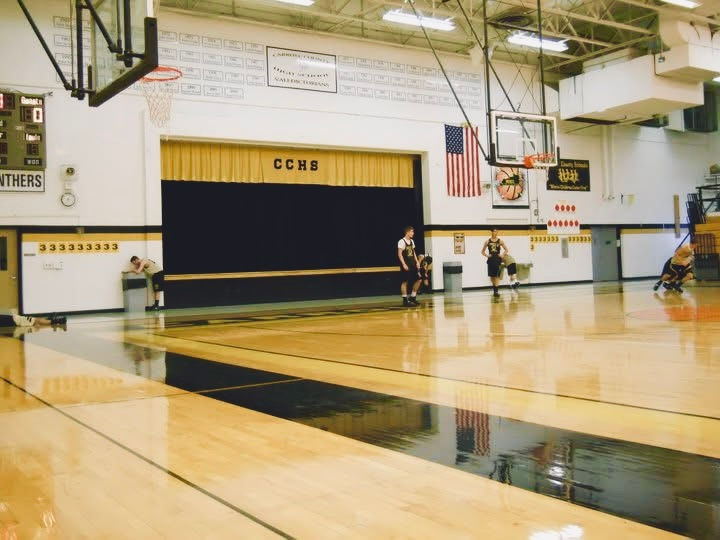The Top 4 Mistakes Parents Make in Youth Sports (And How to Avoid Them)
- Coach Damron

- Jul 1, 2025
- 3 min read

Youth sports can shape kids for life, but sometimes well-meaning parents accidentally make the journey harder. Here are 4 common youth sports parenting mistakes I’ve seen firsthand, and how to avoid them.
Common Youth Sports Parenting Mistakes
❌ Mistake #1: Trying to Drive the Journey
This one is at the root of so many youth sports problems. As parents, it’s natural to be invested in our child’s success. But there’s a fine line between supporting them and owning their journey.
And here’s the truth: this isn’t your ride.
You’re not the driver. You’re the passenger, and what a gift it is to be in that seat. You get to encourage, guide, and celebrate. You might even hold the map sometimes. But your child is behind the wheel. And that means letting them make mistakes, take wrong turns, get lost, and find their own way out.
Think of it this way: we don’t develop strong kids by clearing every obstacle, they develop strength by navigating the road themselves.
Let them struggle. Let them decide. Let them own it. That’s where confidence is built.
❌ Mistake #2: Coaching from the Sidelines
You may mean well when you yell “Shoot it!” or “Go get it!”, but in most cases, you're not helping. In fact, you're likely doing two harmful things:
Stripping them of decision-making. They’re learning the game. Let them think, react, and make their own reads.
Conflicting with their coach. If the coach is saying slow it down and you’re yelling “Push it!”, who should they listen to?
Even if you and the coach are saying the same thing, let the coach's voice be the only one they hear during games.
You’re there to support, not instruct. Encourage hustle. Praise effort. Clap for progress. That’s your role, and it's a powerful one when done right.
❌ Mistake #3: Rescuing Them from Consequences
Effort should always be celebrated, but behavior and accountability matter too.
Sometimes, an athlete makes a mistake. Maybe it’s attitude. Maybe it’s effort. When a coach steps in with consequences, that’s part of the development process. But when a parent intervenes to defend or undo that discipline, it sends the message: “You don’t have to be responsible.”
I’ve seen it happen. A player accepts a consequence. They're willing to own it. But their parent jumps in, and now the athlete loses their spot, not because of the mistake, but because of the parent's interference. Worse, the kid apologizes for the parent, wishing they could just take the consequence and move on.

That’s not growth. That’s learned helplessness.
When I was a player, I once dropped my grades below the line my parents and I had agreed upon. I missed games. I missed practices. And when I came back, my coaches made me earn it back with a punishment I’ll never forget. I ran for hours before even touching a ball. But that discipline changed me, and I’m better for it to this day.
Let them struggle. Let them serve the consequences. Let them grow.
❌ Mistake #4: Doing the Work For Them
You wouldn’t lift weights for your kid and expect them to get stronger. The same is true for discipline, work ethic, and resilience.
Our job as parents is to be the handrail, not the escalator.
Sure, they can walk the stairs on their own. But when they’re tired, frustrated, or doubting themselves, that’s when they might reach out for your support. That’s your moment, to guide, not carry. To encourage, not perform. To stand with them, not in front of them.
Letting your child go through hard things is not abandoning them. It’s preparing them. It’s teaching them to manage their own progress, and to own the results of their choices.
The athletes who thrive aren’t the ones with the loudest parents. They’re the ones who know they’ve got someone in their corner, cheering them on while they do the hard work themselves.
✅ Final Thoughts
Youth sports are meant to be a proving ground, not just for athletes, but for the values we want to instill: responsibility, confidence, teamwork, and grit. But when we confuse our role as parents, we risk taking those lessons away.
Support your athlete by:
Being the handrail, not the driver
Encouraging without over-instructing
Letting them fail, and own their growth
Staying in their corner, not in their spotlight
Let the game be theirs. Let the rewards be theirs. Let the journey be theirs.
📥 Want to Help Your Athlete Build the Right Habits?
Grab my 4-week at-home training guide for just $4.99.
No gym, no excuses, just real development.👉 Download it here
Or want to talk about private or group training for your athlete?👉 Let’s chat
.png)



Comments